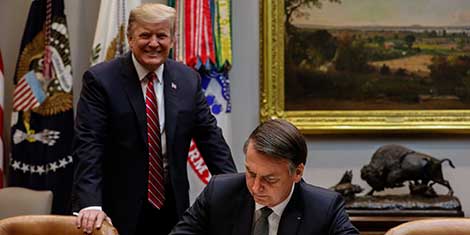
This article was originally published by E-International Relations on 23 August 2019.
The contemporary political environment has seen a paradoxical hijacking of key liberal peace and security concepts which helped to secure the post-Cold War era. With key concepts like human security undermined, what will come next? The following is an initial reflection as my colleague, and I embark on a larger study of how the emergence of right-wing populist nationalism has become a significant global phenomenon and what impact it has had for dominant theories of security in the post-World War II liberal international system. From the challenges to the NATO alliance to questioning the link between poverty and violence, the peace, security and development agenda has been radically transformed in a few short years, with trust between former allies eroding and the moderate level of predictability in the liberal international system being shaken.
